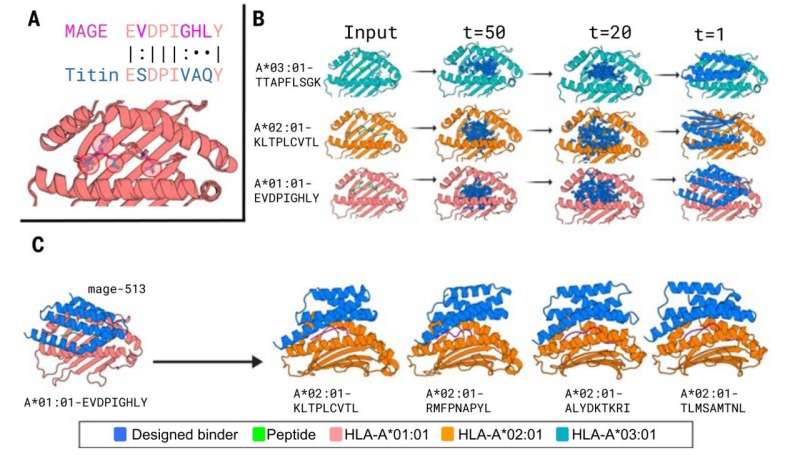In a recent breakthrough, a team of researchers from the U.S. presented protein binders that specifically recognized the peptide portion of 11 diverse pMHCI complexes—amino-acid fragments found on the surface of almost all cells in the body that play a central role in the immune system’s ability to recognize and respond to abnormal or diseased cells, such as cancer cells.
These proteins, designed with the aid of AI, help human immune cells identify the correct targets and function more effectively, according to findings published in Science.
T cells, a type of white blood cell, are the front-line defenders of our immune system, constantly monitoring signs of disease. They do so by scanning for the presence of pMHCI complexes on the cell surface. If any of these peptides signal an abnormality or disease, the T cell receptor (TCR) recognizes it and immediately prompts the immune cell army to respond by destroying the affected cell.

